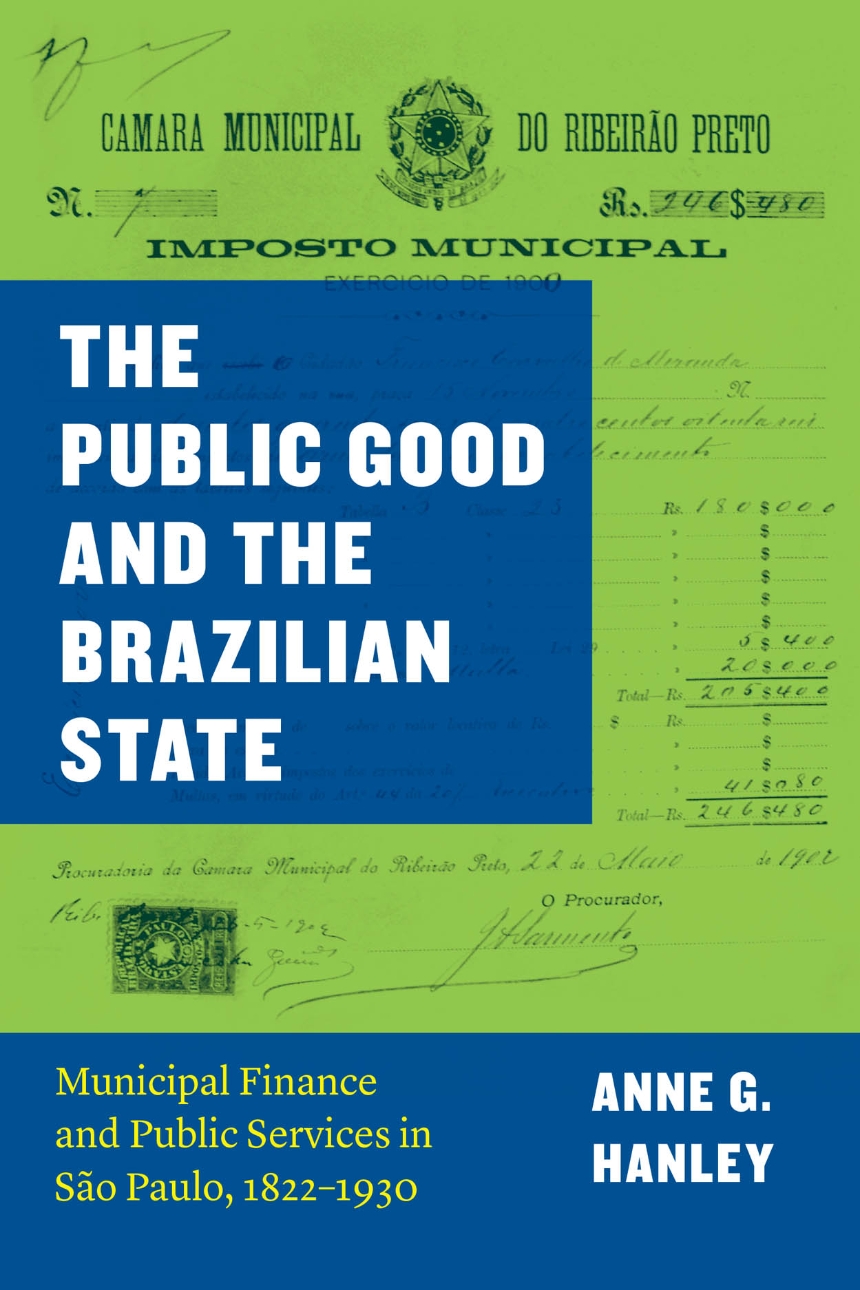The Public Good and the Brazilian State
Municipal Finance and Public Services in São Paulo, 1822–1930
The Public Good and the Brazilian State
Municipal Finance and Public Services in São Paulo, 1822–1930
In The Public Good and the Brazilian State, Anne G. Hanley assembles an economic history of public revenues as they developed in nineteenth-century Brazil. Specifically, Hanley investigates the financial life of the municipality—a district comparable to the county in the United States—to understand how the local state organized and prioritized the provision of public services, what revenues paid for those services, and what happened when the revenues collected failed to satisfy local needs. Through detailed analyses of municipal ordinances, mayoral reports, citizen complaints, and financial documents, Hanley sheds light on the evolution of public finance and its effect on the early economic development of Brazilian society. This deeply researched book offers valuable insights for anyone seeking to better understand how municipal finance informs histories of inequality and underdevelopment.
288 pages | 5 line drawings, 32 tables | 6 x 9 | © 2018
Markets and Governments in Economic History
Economics and Business: Economics--Government Finance, Economics--History, Economics--Urban and Regional
History: Urban History
Reviews
Awards
Latin American Studies Association, Brazil section: LASA Brazil Section Book Prize
Honorable Mention
Brazilian Studies Association: Warren Dean Memorial Prize
Honorable Mention
